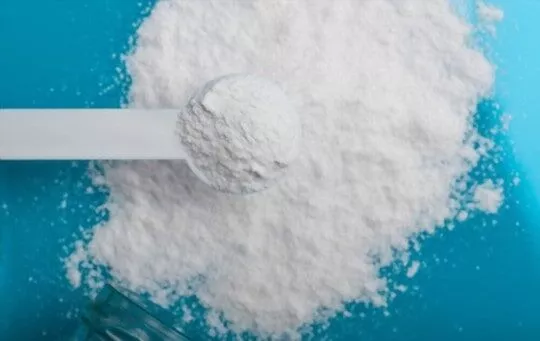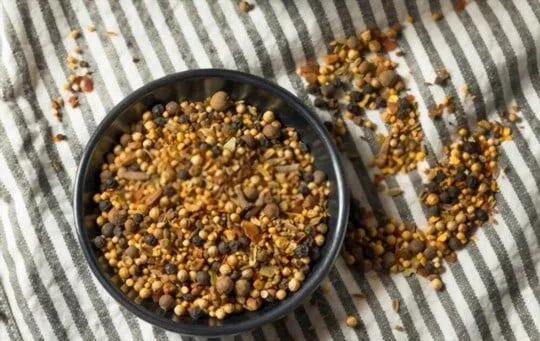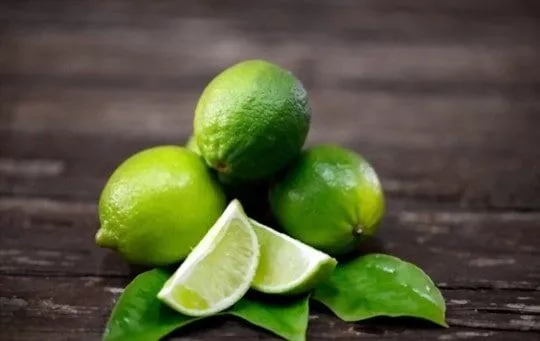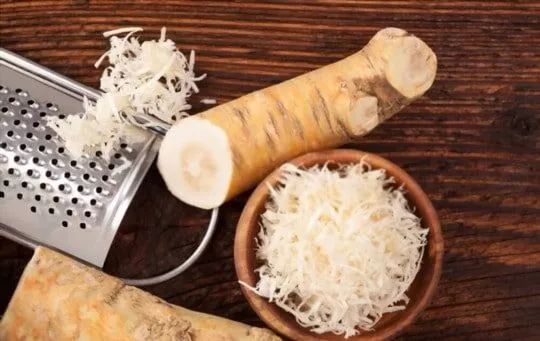If you are a fan of pickling, you might have heard of alum powder.
Alum is a chemical compound that is commonly used as a pickling agent to give crispness to fruits and vegetables.
However, it is not always easy to find alum powder in stores, and some people prefer not to use it due to its potential health risks.
Fortunately, there are several substitutes for alum powder that you can use to achieve similar results.
Some of the best substitutes for alum powder include lime, lemon juice, and pickle crisp granules.
Lime and lemon juice are natural sources of citric acid that can help to firm up fruits and vegetables during the pickling process.
Pickle crisp granules, on the other hand, are a commercial product made from calcium chloride that can help to maintain the texture of pickles without adding any flavor or odor.
In this article, we will explore the 7 best substitutes for alum powder that you can use in your pickling recipes.
Whether you are looking for a natural alternative or a commercial product, we have got you covered.
Keep reading to find out how you can achieve the perfect crunch in your pickles without using alum powder.
What is Alum Powder?

Alum powder is a white crystalline substance that is commonly used in cooking and pickling. It has a sour and acidic taste and is often used as a preservative to keep fruits and vegetables fresh.
Alum powder is also used in baking powder and is a common ingredient in some deodorants and antiperspirants.
Alum powder is made from aluminum sulfate, which is a compound that is found in nature. The compound is extracted from bauxite, which is a type of rock that is rich in aluminum.
The extracted compound is then processed and purified to produce alum powder.
Alum powder has been used for centuries for a variety of purposes, including as a natural remedy for various ailments.
It has been used to treat canker sores, sore throats, and even as a natural remedy for acne. However, it is important to note that there is limited scientific evidence to support these claims.
While alum powder has many uses, it is important to note that it can be harmful if ingested in large quantities.
It can cause nausea, vomiting, and even kidney damage. Therefore, it is important to use alum powder in moderation and to follow the recommended dosage guidelines.
The 7 BEST Substitutes for Alum Powder
1 – Pickling Spice

Pickling spice is a mixture of various spices that are used to flavor pickles. It typically contains whole or cracked spices such as mustard seed, coriander seed, allspice, cinnamon, and cloves. Pickling spice adds flavor and helps to keep the pickles crisp.
2 – Cream Of Tartar

Cream of tartar is a byproduct of wine production. It is an acidic powder that is commonly used in baking. Cream of tartar helps to keep the pickles crisp and also adds a slightly tart flavor.
3 – Arrowroot Powder and Citric Acid

Arrowroot powder is a starch that is commonly used as a thickening agent in cooking. Citric acid is an acid that is found naturally in citrus fruits. When combined, arrowroot powder and citric acid help to keep the pickles crisp and add a slightly tart flavor.
4 – Lime

Lime juice adds a slightly tart flavor and helps to keep the pickles crisp. However, it is important to note that lime juice can also change the color of the pickles.
5 – Ascorbic Acid

Ascorbic acid, also known as vitamin C, helps to keep the pickles crisp and also acts as a preservative. Ascorbic acid can be found in many health food stores and online retailers.
6 – Calcium Chloride
Calcium chloride is a salt that is commonly used as a food additive. It helps to keep the pickles crisp and also speeds up the fermentation process.
7 – Horseradish and Vinegar

Horseradish and vinegar can be used as a substitute for alum powder in pickling recipes. The horseradish adds flavor and the vinegar helps to keep the pickles crisp. This combination is commonly used in traditional Jewish delis for making pickles.
How To Pick The Right Substitute
When looking for a substitute for alum powder, it’s important to consider the purpose of the alum powder in your recipe. Different substitutes may work better for different purposes. Here are some factors to consider when choosing a substitute:
- Taste: Some substitutes, like lemon juice or cream of tartar, may affect the taste of your recipe. Consider whether the substitute will complement or clash with the other flavors in your dish.
- Texture: Alum powder is often used as a pickling agent or to crisp up vegetables. If texture is important in your recipe, consider substitutes like calcium chloride or pickling salt.
- Availability: Some substitutes may be harder to find in your local grocery store. Consider whether you’re willing to make a special trip or order online for a particular substitute.
Conclusion
Alum powder is a common ingredient used in pickling and baking recipes. However, there are several substitutes that can be used in place of alum powder. In this article, we have discussed the 7 best substitutes for alum powder that you can use in your recipes.
- Calcium chloride is an excellent alternative to alum powder when it comes to making pickles crisper.
- Lime is a great substitute for alum powder in pickling recipes because it enhances the crunchiness and flavor of pickles.
- Pickling spice, cream of tartar, arrowroot powder, and citric acid are all suitable replacements for alum powder without compromising on taste or texture.
- Horseradish and vinegar can also be used as substitutes for alum powder in pickling recipes.
- Ascorbic acid, tartaric acid, and citric acid are good substitutes for alum powder in baking recipes.
- It is important to note that while these substitutes can be used in place of alum powder, they may not produce the exact same results.
- It is best to experiment with different substitutes to find the one that works best for your recipe and personal taste preferences.
Jenny has always been passionate about cooking, and she uses her platform to share her joy of food with others. Her recipes are easy to follow, and she loves giving tips and tricks to help others create their own unique culinary creations.

